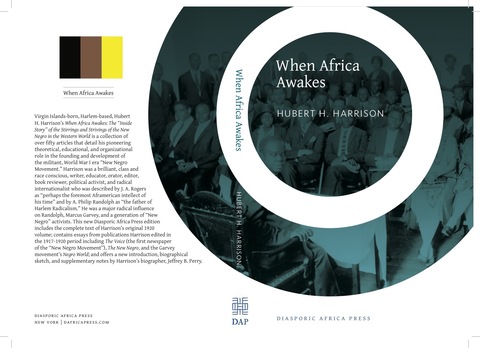in interview with Paul Malachi and Tony Van Der Meer for “Community Conversations,”
Boston Neighborhood News Television Studio, Roxbury, Massachusetts, April 30, 2016.
Part 2 of this interview will be done in late 2017.
Among those who worked on the video production effort were: DVD/Audio Operator Bradley Lewis. Graphics Operator Tomek Doros; Cameras Chris West, Reggie Brown, Rony Tshiamala; Studio Production Interns Rony Tshiamala and Bradley Lewis; Studio Technician Tomek Doros; and Studio Manager Barbara Barrow-Murray.
The interview discusses aspects of Jeffrey B. Perry's work, which focuses on the role of white supremacy as a retardant to progressive social change and on the centrality of struggle against white supremacy to progressive social change efforts.
Particular attention is paid to the life and work of the anti-white supremacist working class intellectuals and activists Hubert Harrison (“The Father of Harlem Radicalism”) and Theodore W. Allen (pioneer of “white skin privilege" analysis and author of “The Invention of the White Race”).
Harrison (“The Father of Harlem Radicalism”) and Theodore W. Allen (pioneer of “white skin privilege analysis” and author of “The Invention of the White Race”) are two of the twentieth century's most important thinker on race and class.
For the video CLICK HERE
For comments from scholars and activists on "Hubert Harrison: The Voice of Harlem Radicalism, 1883-1918" (Columbia University Press) CLICK HERE
For information on "A Hubert Harrison Reader" (Wesleyan University Press) CLICK HERE
For information on the new, expanded, Diasporic Africa Press edition of Hubert H. Harrison's “When Africa Awakes: The 'Inside Story’ of the Stirrings and Strivings of the New Negro in the Western World” CLICK HERE
For a video of a Slide Presentation/Talk on Hubert Harrison CLICK HERE
For articles, audios, and videos by and about Hubert Harrison CLICK HERE
For a widely viewed video of a slide presentation/talk on Allen’s “Invention” (2 vols.; Verso Books, new expanded edition, 2012), which opens with some insights from the life and work of Hubert Harrison (“The Father of Harlem Radicalism”), CLICK HERE
For “Theodore W. Allen and ‘The Invention of the White Race’” video of slide presentation/talk by Jeffrey B. Perry at a June 2016 “Multiracial Organizing Conference” against white supremacy in Greensboro, NC
CLICK HERE
(Slides in this video are very clear).
For information on Theodore W. Allen’s “The Invention of the White Race” Volume II: "The Origin of Racial Oppression in Anglo America" (including comments from scholars and activists, Table of Contents, and an overview of the volume) CLICK HERE Note – the new, expanded Verso Books edition of this volume includes new introductions and notes, an expanded index, and a lengthy and detailed internal study guide.
For information on Theodore W. Allen’s “The Invention of the White Race” Volume I: “Racial Oppression and Social Control" (including comments from scholars and activists, Table of Contents, and an overview of the volume) CLICK HERE Note – the new, expanded Verso Books edition of this volume includes new introductions and notes, an expanded index, and a lengthy and detailed internal study guide.
For information on Theodore W. Allen’s “Summary of the Argument of The Invention of the White Race” Part 1 CLICK HERE
and for Part 2 CLICK HERE
For an in-depth treatment of the development of the work of Theodore W. Allen see “The Developing Conjuncture and Some Insights From Hubert Harrison and Theodore W. Allen on the Centrality of the Fight Against White Supremacy” in PDF format at the TOP LEFT CLICK HERE
or at “Cultural Logic” CLICK HERE
For additional writings by and about Theodore W. Allen CLICK HERE
Read More
